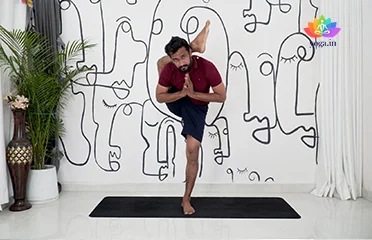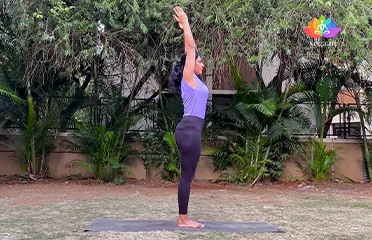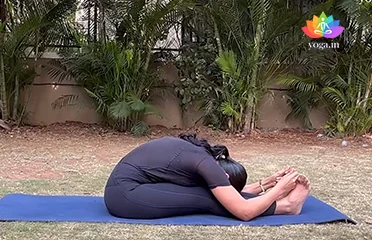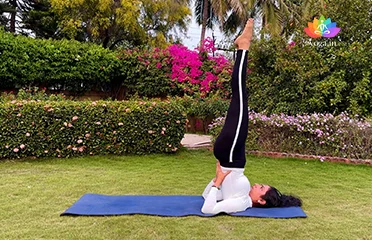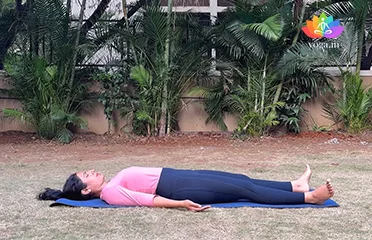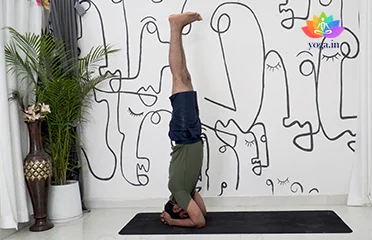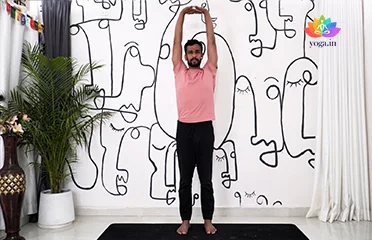Durvasasana (Sage Durvasa’s Pose)
दुर्वासासना / Sage Durvasa's Pose
The Sanskrit name is derived from the word Durva (दुर्वा) which [�K]
Hastapadasana (Hand to Foot Pose)
हस्तपदासन / Hand to Foot Pose
The sanskrit name is derived from hasta (हस्त) means hands, pada (पदा) [�K]
Paschimottanasana (Seated Forward Bend)
पश्चिमोत्तानासन / Seated Forward Bend
The Sanskrit name is derived from three sanskrit words: Paschima (पश्चिमा) [�K]
Sarvangasana (Shoulderstand)
सर्वाङ्गासनI / Shoulderstand
The Sanskrit name is derived from Sarva (सर्वाङ्ग) meaning all, [�K]
Savasana (Corpse Pose)
शवासना / Corpse Pose
The Sanskrit name is derived from Śhava (शव) meaning "corpse" and āsana [�K]
Sirsasana (Headstand)
शीर्षासन / Headstand
The Sanskrit name is derived from Sirsa (शीर्ष) meaning head and asana [�K]
Tadasana (Mountain Pose)
ताड़ासन / Mountain Pose
The sanskrit name is derived from tada (ताड़ा) meaning mountain and [�K]
Yoga for Memory Problem: Boost Brainpower and Sharpen Focus
Memory problems, such as forgetfulness, difficulty concentrating, and cognitive decline, can significantly impact daily life. Yoga can aid in treating and relieving memory problems by improving brain function, reducing stress, and enhancing mental clarity. Through physical postures, breathing exercises, and meditation, yoga promotes better brain health and cognitive functioning.
Understanding Memory Problems:
Memory problems refer to difficulties in recalling information, maintaining focus, and processing new information. These issues can range from mild forgetfulness to severe cognitive impairments, such as those seen in dementia and Alzheimer’s disease. Memory problems can result from aging, stress, medical conditions, or lifestyle factors, affecting one’s ability to perform everyday tasks effectively.
Yoga’s Role in Relieving Memory Problems:
Specific yoga practices can help alleviate memory problems by enhancing cognitive function, reducing stress, and promoting mental clarity. Techniques such as asanas (postures), pranayama (breathing exercises), and meditation can improve blood flow to the brain, increase oxygen supply, and create a sense of calm and focus.
Key Factors Contributing to Memory Problems:
Several factors can contribute to the development of memory problems, including:
- Aging: Natural decline in cognitive function over time.
- Stress: Chronic stress can impair memory and concentration.
- Poor Sleep: Lack of restful sleep affects brain function.
- Nutritional Deficiencies: Lack of essential nutrients impairs brain health.
- Medical Conditions: Conditions like diabetes and hypertension can affect memory.
- Mental Health Issues: Depression and anxiety can lead to cognitive issues.
Symptoms of Memory Problems:
Common symptoms of memory problems include:
- Forgetfulness: Frequently forgetting names, dates, and daily tasks.
- Difficulty Concentrating: Struggling to focus on tasks or conversations.
- Confusion: Becoming easily confused or disoriented.
- Poor Decision-Making: Difficulty making choices or solving problems.
- Repetition: Repeating questions or stories within a short period.
- Misplacing Items: Regularly losing or misplacing belongings.
Treatment of Memory Problems through Yoga and Pranayama:
Yoga and pranayama can be very beneficial in managing memory problems. Some effective practices include:
Specific Yoga Poses:
- Sarvangasana (Shoulder Stand): Enhances blood flow to the brain, improving cognitive function.
- Padmasana (Lotus Pose): Calms the mind and improves concentration.
- Vajrasana (Diamond Pose): This pose improves blood circulation and mental clarity. It’s a simple seated position that can be done almost anywhere.
Pranayama Exercises:
- Kapalbhati (Skull Shining Breath): Energizes the brain and clears mental fog.
- Nadi Shodhana (Alternate Nostril Breathing): Balances the brain hemispheres and reduces stress.
Diet for Memory Problems:
A balanced diet can help manage memory problems. Recommendations include:
- Omega-3 Fatty Acids: Found in fish, flaxseeds, and walnuts, these support brain health.
- Antioxidant-Rich Foods: Berries, dark chocolate, and green leafy vegetables protect brain cells.
- Whole Grains: Oats, quinoa, and brown rice provide sustained energy for the brain.
- Hydration: Drinking plenty of water to maintain optimal brain function.
Caution for Memory Problems:
While practicing yoga for memory problems, it is essential to:
- Avoid Overexertion: Practice at a gentle pace to prevent strain.
- Be Mindful of Balance: Certain poses may affect balance, so proceed with care.
Always consult with a healthcare provider before starting any new exercise regimen, especially if you have severe memory problems.
Contraindications for Memory Problems:
Individuals with severe memory problems or cognitive impairments should:
- Avoid Complex Poses: Stick to simple and gentle yoga practices.
- Seek Professional Guidance: Consult a yoga therapist or healthcare professional for personalized recommendations.


